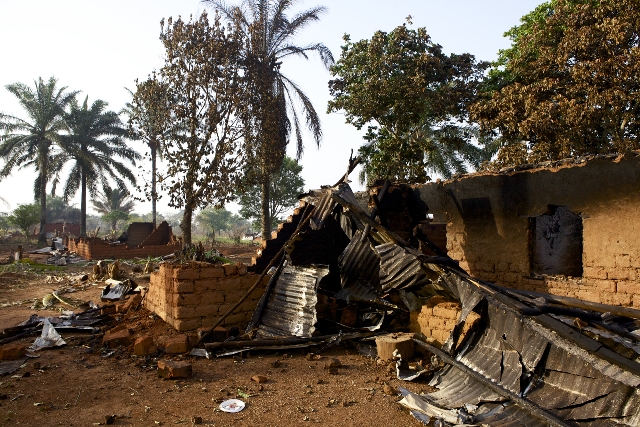SfD Skills for Development
|
LGBTQ+ Centre in Greenwich London: The LGBTQ+ community are increasingly finding that they do not have safe spaces to meet or connect with like-minded people. Although structurally LGBTQ+ rights have advanced dramatically in the past years, still within society significant discrimination and prejudice exists. We want to create a space for the LGBTQ+ community in Greenwich London. |
|
Training of rice farmers in Ngoketunjia, Cameroon: this project was initiated at the behest of one of the women's groups. In a community with a high mortality rate and extremely high unemployment, it is not uncommon to find mothers supporting not only their children, but their children's children and extended families. Farming remains the main source of income for these women and rice is one of the main cash crops in this area. The income from rice provides these families with education, medicines and other essentials.
Yet the farms are undeveloped and lacking basics such as access roads and irrigation, and the women work under conditions of incredible hardship and produce below average yields. In partnership with the International Food Organisation PAN AP, Cornell University from the USA, a local cameroonian NGO FAP, the Cameroonian Government Rice Development Organisation UNVDA and other partners, we will provide training to the farmers on new techniques and methodologies. These techniques are designed to empower grass root farmers by improving their nursing techniques, their planting techniques, to reduce their dependency on chemicals etc. From similar activities undertaken in other parts of the world, we believe that we can improve yields by upto 3 times the current levels. For more information, click here |
|
Tribal conflict in Cameroon: In March 2011 a conflict broke out between the villages of Balikumbat and Bambalang (Ngoketunjia, North West Province of Cameroon). After 10 years of peace, the tribes of Balikumbat and Bambalang fought over a land dispute. The fighting lasted almost 2 weeks, and during those 2 weeks, 367 homes were destroyed and 2800 men, women and children were displaced. Their farms were burnt, the trees destroyed and the livestock killed. Schools and hospitals were ransacked. Amongst the exodus were abandoned children, as their mothers fearful for their safety, forced them to flee the village.
Intervention in wars raises many moral and practical questions. Yet the reality is that in a time of population growth (and the resulting demands from an essentially rural population for more farming lands to feed the increasing population) and a disproportionate impact on the African continent by climate change (with a result of decreasing farming and grazing lands), land based conflicts are increasingly a problem and will continue to be so. SfD in partnership with New York University (NYU Center for Global Affairs & The Wilf Family Department of Politics) will work with local partners PCIG (Progressive Common Initiative Group) in developing and runnign a sensitization campaign. The programme is aimed to empower local partners to handle and prevent such conflicts. |

